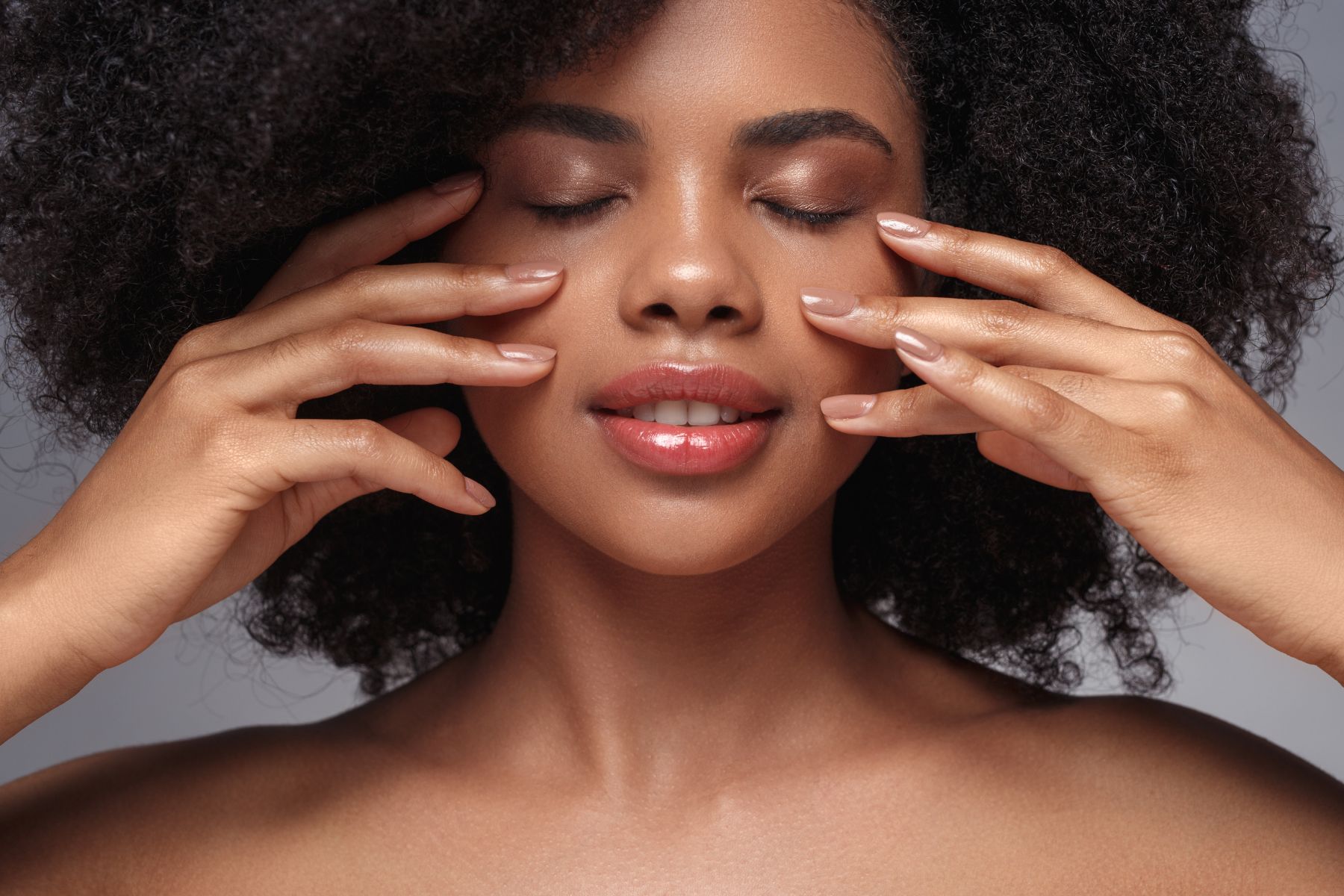The Skin Care Hack You’re Not Using: Why Skin Cycling Could Change Everything

What is Skin Cycling?
You’ve probably heard the phrase “skin cycling” making waves across social media or skincare forums, but what exactly does it mean? The concept of skin cycling revolves around rotating products—particularly powerful ones like retinoids, exfoliants, and hydrators—in a way that allows your skin to recover optimally. This routine gives your skin a break from the sometimes harsh or overly frequent use of active ingredients, promoting healthier, more radiant skin over time.
This article will dive into the science behind skin cycling, why it’s so effective, how you can implement it, and the top product recommendations to ensure you get the best results.
Why Skin Cycling? The Need for Balance
Skincare enthusiasts know that powerful active ingredients, such as retinoids and exfoliating acids, are game-changers for tackling issues like acne, fine lines, hyperpigmentation, and dullness. However, overuse of these products can lead to irritation, dryness, and even exacerbate the problems you’re trying to treat. That’s where skin cycling comes in.
Why do you need it?
Our skin has a natural barrier—known as the skin’s moisture barrier—that helps retain hydration and fend off environmental irritants. Overloading it with too many active ingredients can damage this barrier, causing redness, irritation, and breakouts. Skin cycling offers a simple way to give your skin the benefits of these products while allowing ample recovery time to repair and restore itself.

The Skin Cycling Routine
Here’s a breakdown of a typical 4-day skin cycling routine:
Day 1: Exfoliation
Day 2: Retinoid
Day 3: Recovery
Day 4: Recovery
Let’s take a deeper dive into each of these phases.
Day 1: Exfoliation Night
On the first night of the cycle, you’ll exfoliate your skin to remove dead skin cells and help your skin better absorb other products during the rest of the cycle.
Benefits of Exfoliation:
- Unclogs pores
- Smooths texture
- Increases cell turnover for brighter, fresher skin
Product Recommendation:
- Paula’s Choice Skin Perfecting 2% BHA Liquid Exfoliant
This cult-favorite BHA (beta hydroxy acid) exfoliant uses salicylic acid to dissolve excess oils and dead skin, making it perfect for those with acne-prone or oily skin. See the link to product here - The Ordinary Glycolic Acid 7% Toning Solution
This affordable glycolic acid solution from The Ordinary is excellent for those who want a gentle exfoliation. Glycolic acid, an AHA (alpha hydroxy acid), brightens and refines the skin’s surface.
Link to product here
Day 2: Retinoid Night
Retinoids are powerful vitamin A derivatives that help with anti-aging, acne, and overall skin texture improvement. The second night is dedicated to applying retinoids to promote cellular turnover and collagen production.
Benefits of Retinoids:
- Reduces fine lines and wrinkles
- Fights acne and blackheads
- Boosts collagen production
- Evens skin tone
Product Recommendation:
- Differin Gel (Adapalene 0.1%)
Differin is a prescription-strength retinoid available over the counter and is an excellent option for beginners or those with acne. It’s gentle yet effective for treating and preventing breakouts.
Link to product - CeraVe Resurfacing Retinol Serum
This affordable retinol serum is great for minimizing post-acne marks and hyperpigmentation while being gentle enough for sensitive skin. It also includes ceramides to help strengthen the skin barrier.
Link to product
Days 3 & 4: Recovery Nights
These two nights are all about recovery and restoration. No harsh exfoliants or active ingredients—just soothing and hydrating products that repair the skin’s barrier. The idea is to replenish moisture and allow your skin time to heal after the potent treatments of the first two days.
Benefits of Recovery Nights:
- Hydrates and replenishes moisture levels
- Supports skin barrier recovery
- Reduces irritation and inflammation
Product Recommendation:
- La Roche-Posay Cicaplast Baume B5
This multitasking balm is a must-have for anyone looking to repair their skin barrier. It contains panthenol (vitamin B5), shea butter, and glycerin to soothe, hydrate, and promote healing.
Link to product - Drunk Elephant Lala Retro Whipped Cream
A rich, luxurious cream that is perfect for recovery nights, packed with ceramides and antioxidants to deeply moisturize and nourish the skin.
Link to product
Customizing Your Skin Cycling Routine
The beauty of skin cycling is its flexibility. Depending on your skin’s sensitivity, you can adjust the routine to better suit your needs. For example, if you have highly sensitive skin, you can extend the recovery phase to three or even four days between exfoliation and retinoid application.
Alternatives for Sensitive Skin:
- Opt for gentler exfoliants, like mandelic acid or lactic acid.
- Choose a low-dose retinoid, like retinyl palmitate or retinol at lower percentages.
- Use niacinamide during your recovery nights to calm inflammation and strengthen the skin barrier.
Product Recommendation for Sensitive Skin:
- The Inkey List PHA Toner
A mild exfoliant with polyhydroxy acids (PHAs) that gently exfoliate without causing irritation, perfect for those with sensitive skin.
Link to product - Avene RetrinAL 0.05 Cream
A gentle retinaldehyde formula that is less irritating than retinoic acid but still effective at tackling signs of aging and acne.
Link to product
Why Recovery is Key to the Success of Skin Cycling
While exfoliants and retinoids get most of the attention, recovery nights are the unsung heroes of the skin cycling process. They ensure that your skin isn’t constantly bombarded with actives, which can lead to long-term damage like sensitization and dehydration.
By allowing your skin time to repair and restore itself, you strengthen its barrier, making it more resilient to the powerful treatments on exfoliation and retinoid nights.
Signs You Need to Start Skin Cycling
Wondering if skin cycling is for you? Here are some signs that your skin might benefit from this structured routine:
- Frequent Breakouts or Irritation
If your skin has been breaking out more often or looks red and irritated, it could be due to over-exfoliation or overuse of actives. - Inconsistent Results
If you’re using great products but aren’t seeing the results you expect, it may be because your skin is overloaded and can’t keep up with constant turnover. - Dryness and Flakiness
Constant use of exfoliants and retinoids without a break can lead to dry, flaky skin that struggles to retain moisture. - Dull Complexion
A damaged skin barrier can make your complexion appear dull and lifeless, even with regular exfoliation. Skin cycling helps restore a healthy glow by balancing active treatments with recovery.

Pro Tips for Success with Skin Cycling
To make the most of your skin cycling routine, keep these expert tips in mind:
- Be Patient
It can take 2-4 weeks to see visible results, especially if you’re new to using retinoids or exfoliants. Stick with the routine, and your skin will thank you. - Use Sunscreen Religiously
During skin cycling, your skin is more sensitive to the sun, especially on exfoliation and retinoid days. Wearing broad-spectrum sunscreen with SPF 30 or higher is crucial to protect your skin from UV damage.
Product Recommendation:
- EltaMD UV Clear Broad-Spectrum SPF 46
A lightweight sunscreen that’s perfect for sensitive, acne-prone skin. It contains niacinamide to calm redness while providing excellent sun protection.
Link to product
- Avoid Overloading Your Routine
Stick to the basics: exfoliants, retinoids, and hydrators. Avoid adding extra actives like vitamin C or strong acids during your skin cycling routine unless you are experienced with these ingredients. - Listen to Your Skin
If your skin feels irritated or overly dry, extend your recovery nights or use gentler versions of exfoliants and retinoids.
Is Skin Cycling Right for You?
Skin cycling is a smart, balanced approach to using active ingredients without overwhelming your skin. By strategically alternating between exfoliation, retinoid use, and recovery, you can maximize results while minimizing irritation and damage to your skin barrier. Whether you’re dealing with acne, hyperpigmentation, or signs of aging, skin cycling offers a practical solution to achieve smoother, more radiant skin.
Ready to try skin cycling?
Start slow, be consistent, and don’t forget to prioritize your recovery nights for optimal skin health. Your skin will thank you with a more even tone, reduced breakouts, and a glow that lasts.


